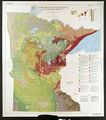|
|
| (24 intermediate revisions by the same user not shown) |
| Line 1: |
Line 1: |
| <gallery> | | <gallery> |
|
| |
|
| ||Johannes (or Jean) Sturm, Latinized as Ioannes Sturmius (d. 3 March 1589) was a German-French educator, influential in the design of the Gymnasium system of secondary education. | | File:Georg Cantor 1894.png|link=Georg Cantor (nonfiction)|1845: Mathematician and philosopher '''[[Georg Cantor (nonfiction)|Georg Cantor]]''' born. He will invent [[Set theory (nonfiction)|set theory]], a fundamental area of mathematical inquiry. |
|
| |
|
| ||Robert Hooke FRS (d. 3 March 1703) was an English natural philosopher, architect and polymath. | | File:Alexander Graham Bell.jpg|link=Alexander Graham Bell (nonfiction)|1847: Engineer, inventor, and academic '''[[Alexander Graham Bell (nonfiction)|Alexander Graham Bell]]''' born. He will patent the telephone in 1876. |
|
| |
|
| ||Vincenzo Brunacci (b. 3 March 1768) was an Italian mathematician | | File:Minnesota Quaternary geologic map.jpg|link=Minnesota (nonfiction)|1849 – The Territory of '''[[Minnesota (nonfiction)|Minnesota]]''' was created. |
|
| |
|
| ||Richard Dunthorne (d. 3 March 1775) was an English astronomer and surveyor, who worked in Cambridge as astronomical and scientific assistant to Roger Long | | File:Emil Artin.jpg|link=Emil Artin (nonfiction)|1898: Mathematician '''[[Emil Artin (nonfiction)|Emil Artin]]''' born. He will work on algebraic number theory, contributing to class field theory and a new construction of L-functions. He also contributed to the pure theories of rings, groups and fields. |
|
| |
|
| ||Gotthilf Heinrich Ludwig Hagen (b. March 3, 1797) was a German civil engineer who made important contributions to fluid dynamics, hydraulic engineering and probability theory. | | File:Paul Halmos.jpg|link=Paul Halmos (nonfiction)|1916: Mathematician and academic '''[[Paul Halmos (nonfiction)|Paul Halmos]]''' born. He will make fundamental advances in the areas of mathematical logic, probability theory, statistics, operator theory, ergodic theory, and functional analysis (in particular, Hilbert spaces). |
|
| |
|
| ||1800 – Heinrich Georg Bronn, German geologist and paleontologist (d. 1862)
| | File:Peter Giblets.jpg|link=Peter Giblets|2017: Steganographic analysis of '''[[Peter Giblets]]''' illustration unexpectedly reveals "at least a terabyte of encrypted data, apparently a 'Best of Peter Giblets' compilation." |
| | |
| ||Aleksandr Nikolayevich Korkin (b. 3 March [O.S. 19 February] 1837) was a Russian mathematician. He made contribution to the development of partial differential equations, and was second only to Chebyshev among the founders of the Saint Petersburg Mathematical School.
| |
| | |
| ||1841 – John Murray, Canadian-Scottish oceanographer and biologist (d. 1914)
| |
| | |
| File:Georg Cantor 1894.png|link=Georg Cantor (nonfiction)|1845: Mathematician and philosopher [[Georg Cantor (nonfiction)|Georg Cantor]] born. He will invent [[Set theory (nonfiction)|set theory]], a fundamental area of mathematical inquiry.
| |
| | |
| File:Charles Grafton Page.jpg|link=Charles Grafton Page (nonfiction)|1847: Engineer and inventor [[Charles Grafton Page (nonfiction)|Charles Grafton Page]] publishes new class of [[Gnomon algorithm functions]] which detect and prevent [[crimes against mathematical constants]]. | |
| | |
| File:Alexander Graham Bell.jpg|link=Alexander Graham Bell (nonfiction)|1847: Engineer, inventor, and academic [[Alexander Graham Bell (nonfiction)|Alexander Graham Bell]] born. He will patent the telephone in 1876.
| |
| | |
| File:Minnesota Quaternary geologic map.jpg|link=Minnesota (nonfiction)|1849 – The Territory of [[Minnesota (nonfiction)|Minnesota]] was created.
| |
| | |
| ||Zdenko Hans Skraup (b. March 3, 1850) was a Czech-Austrian chemist who discovered the Skraup reaction, the first quinoline synthesis.
| |
| | |
| ||1857 – Second Opium War: France and the United Kingdom declare war on China.
| |
| | |
| File:Jacquard loom with two children and a dog (circa 1877).jpg|link=Jacquard loom (nonfiction)|1876: Children reprogram [[Jacquard loom (nonfiction)|Jacquard loom]] to compute new family of [[Gnomon algorithm functions]].
| |
| | |
| ||William Kingdon Clifford FRS (d. 3 March 1879) was an English mathematician and philosopher. Building on the work of Hermann Grassmann, he introduced what is now termed geometric algebra, a special case of the Clifford algebra named in his honour.
| |
| | |
| File:Emil Artin.jpg|link=Emil Artin (nonfiction)|1898: Mathematician [[Emil Artin (nonfiction)|Emil Artin]] born. He will work on algebraic number theory, contributing to class field theory and a new construction of L-functions. He also contributed to the pure theories of rings, groups and fields.
| |
| | |
| File:Paul Halmos.jpg|link=Paul Halmos (nonfiction)|1916: Mathematician and academic [[Paul Halmos (nonfiction)|Paul Halmos]] born. He will make fundamental advances in the areas of mathematical logic, probability theory, statistics, operator theory, ergodic theory, and functional analysis (in particular, Hilbert spaces).
| |
| | |
| ||1917 – Sameera Moussa, Egyptian physicist and academic (d. 1952)
| |
| | |
| ||1918 – Arthur Kornberg, American biochemist and academic, Nobel Prize laureate (d. 2007)
| |
| | |
| ||1938 – Oil is discovered in Saudi Arabia.
| |
| | |
| ||1969 – Apollo program: NASA launches Apollo 9 to test the lunar module.
| |
| | |
| ||1980 – The USS Nautilus is decommissioned and stricken from the Naval Vessel Register.
| |
| | |
| ||Sewall Green Wright (December 21, 1889 – March 3, 1988) was an American geneticist known for his influential work on evolutionary theory and also for his work on path analysis.
| |
| | |
| ||1990 – Charlotte Moore Sitterly, American astronomer (b. 1898)
| |
| | |
| ||1991 – An amateur video captures the beating of Rodney King by Los Angeles police officers.
| |
| | |
| ||1993 – Carlos Marcello, Tunisian-American mob boss (b. 1910)
| |
| | |
| ||1999 – Gerhard Herzberg, German-Canadian chemist and astronomer, Nobel Prize laureate (b. 1904)
| |
| | |
| ||2015 – Ernest Braun, Austrian-English physicist and academic (b. 1925)
| |
|
| |
|
| </gallery> | | </gallery> |





